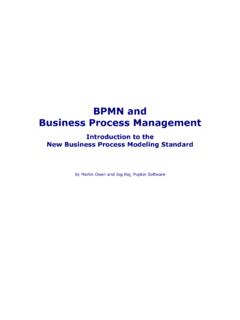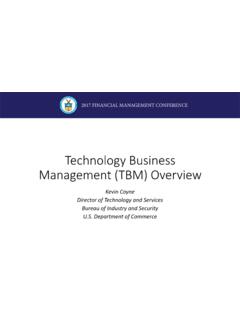Transcription of Understanding Japanese Management ... - Business Expert …
1 Understanding Japanese Management PracticesParissa HaghirianInternational Business CollectionS. Tamer Cavusgil Michael R. Czinkota Gary Japanese Management PracticesParissa HaghirianToday, Japan is the most influential economy in Asia and the second largest econ-omy in the world. Japanese consumers are among the richest in the world, and the Japanese market still provides profitable investment opportunities. Not only are the Japanese able to adopt Western ideas and techniques without problems but they also maintain a very unique perspective of the Management practices are no exception. And this outstanding new book, Understanding Japanese Management practices , gives you and other internation-al managers an in-depth look at Japanese Management practices and how these can be implemented into Western corporations. It examines the cultural founda-tions of Japanese Management and explains the most famous Japanese Business concepts, such as kaizen (just-in-time) and lifetime employment.
2 It then provides practical advice on how to successfully enter and position Western products in the Japanese market. Finally, it provides an advice on how to negotiate successfully with Japanese Business partners and reveals what Western managers can learn from Japanese Management Management practices have had an enormous influence on Western Management practices over the past few decades. Many Japanese Management practices have become a standard in Western firms. This book will undoubtedly guide you through Japanese Business practices and how these practices help to improve Business processes and to increase quality and efficiency in numerous corporations worldwide. It will also help you learn more about what Japanese man-agement is and how do Japan s Management practices differ from those in the West.
3 Dr. Parissa Haghirian is the associate professor of international Management at the Faculty of Liberal Arts at Sophia University in Tokyo, Japan. She is also a visit-ing professor at Groupe HEC in Paris, Aalto University, Keio Business School, and an adjunct professor at Temple University in Tokyo. Parissa grew up in Austria, where she obtained her MA in Japanese Studies from Vienna University (1998). She was awarded MA (2000) and PhD in International Management (2003) by Vienna University of Business , Austria. During her studies she had spent four years in East Asia, mainly in Japan, and worked for several years in Japanese and European mul-tinational corporations. After finishing her PhD, Parissa first became an assistant professor of international Management in the Department of International Man-agement at Kyushu Sangyo University in Japanese Management PracticesHagHirianisBn: Business CollectionS.
4 Tamer Cavusgil Michael R. Czinkota Gary KnightEditorsUnderstanding Japanese Management PracticesUnderstanding Japanese Management PracticesParissa HaghirianUnderstanding Japanese Management PracticesCopyright Business Expert Press, LLC, rights reserved. No part of this publication may be reproduced, stored in a retrieval system, or transmitted in any form or by any means electronic, mechanical, photocopy, recording, or any other except for brief quotations, not to exceed 400 words, without the prior permission of the published in 2010 byBusiness Expert Press, LLC222 East 46th Street, New York, NY : 978-1-60649-118-8 (paperback)ISBN-10: 1-60649-118-0 (paperback)ISBN-13: 978-1-60649-119-5 (e-book)ISBN-10: 1-60649-119-9 (e-book)DOI publication in the Business Expert Press International Business collectionCollection ISSN: 1948-2752 (print)Collection ISSN: 1948-2760 (electronic)Cover design by Jonathan PennellInterior design by Scribe edition: August 201010 9 8 7 6 5 4 3 2 1 Printed in the United States of , Japan is the most influential economy in Asia and the second larg-est economy in the world.
5 Japanese consumers are among the richest in the world, and the Japanese market still provides profitable investment opportunities. Not only are the Japanese able to adopt Western ideas and techniques without problems but they also maintain a very unique per-spective of the Management practices are no exception. And this outstand-ing new book, Understanding Japanese Management practices , gives you and other international managers an in-depth look at Japanese manage-ment practices and how these can be implemented into Western corpo-rations. It examines the cultural foundations of Japanese Management and explains the most famous Japanese Business concepts, such as kaizen, just-in-time, and lifetime employment. It then provides practical advice on how to successfully enter and position Western products in the Japa-nese market. Finally, it provides an advice on how to negotiate success-fully with Japanese Business partners and reveals what Western managers can learn from Japanese Management Management practices have had an enormous influence on Western Management practices over the past few decades.
6 Many Japa-nese Management practices have become a standard in Western firms. This book will undoubtedly guide you through Japanese Business prac-tices and how these practices help to improve Business processes and to increase quality and efficiency in numerous corporations worldwide. It will also help you learn more about what Japanese Management is and how do Japan s Management practices differ from those in the West. KeywordsJapan, Japanese Management , Asia, international Management and mar-keting, culture, cross-cultural Management , market entry, negotiationsContentsList of Tables ..viiiPreface ..ixPart I CharaCterIstICs of the Japanese CorPoratIon ..1 Chapter 1 Kaizen and Total Quality Management ..3 Chapter 2 Human Resource Management ..13 Chapter 3 Production Management ..31 Chapter 4 Knowledge Management ..39 Part II DoIng Business WIth the Japanese .
7 53 Chapter 5 Entering the Japanese Market ..55 Chapter 6 Succeeding as a Foreign Manager in a Japanese Firm ..75 Chapter 7 Intercultural Challenges When Working in Japan ..91 Chapter 8 Selling Your Product to Japanese Customers ..107 Chapter 9 Negotiations With Japanese Business Partners ..125 Part III What Can Western Managers Learn froM JaPan? ..137 Chapter 10 Learning From Japanese Management ..139 Glossary ..145 Notes..147 References ..151 Index ..155 TablesTable Overview of the 5S System ..8 Table Knowledge Management in Japan and in the West ..41 Table New Product Development in Western Corporations and in Japanese Corporations ..48 Table Changes Regarding Knowledge Management in Contemporary Japanese Organizations ..50 Table Support Organizations for Entering the Japanese Market ..63 Table Challenges When Attempting to Enter the Japanese Market.
8 64 Table Challenges When Looking for a Business Partner in Japan ..66 Table Challenges When Establishing a Subsidiary in Japan ..67 Table Overview of Challenges When Entering the Japanese Market ..71 Table Differences Between Japanese and Western Project Management ..87 Table Networking Organizations for Foreign Entrepreneurs and Managers in Tokyo ..121 Table Dos and Don ts When Negotiating With the Japanese ..135 PrefaceWhen I first went to Japan almost 20 years ago, I was a student of inter-national Business . To support my expensive language classes in Tokyo, I got a job in a Tokyo firm, where I stayed for more than 2 years. This was my first job, and at that time, I had no comparison with what it would be like to work in a Western loved working in a Japanese firm. People were very friendly and sup-portive, the enthusiasm of employees for their job and their company was enormously high, and there was real team spirit.
9 Even after return-ing to my home country, I continued to work in a Japanese corporation in Vienna, where I worked at one of Japan s major broadcasting corpo-rations. Work was very demanding, but again, the Japanese team was highly motivated, the atmosphere was family-like, and all employees were treated with great was only at the age of 27 that I first entered a Western firm. This was the biggest culture shock I have encountered so far. After being socialized into a Japanese firm for more than 7 years, the Western firm seemed an aggressive and very uncooperative place. I still remember how shocked I was to see great competitiveness between employees something I had never experienced before. Communication styles were very different as well: In Western firms, employees seemed to be very careful about what they said to each other, whereas in Japan, we had no real secrets within the firm.
10 It took me a few months to recognize the benefits of a Western workplace in which praise is more individually awarded and I was seen more as an individual than as a team enjoyed working in both systems. But I was always, and still am, amazed how complementary and at the same time how successful both are. Western Business practices focus on individuals and gain competitive advantages by using their different views, opinions, and ideas as a larger pool from which to extract ideas that benefit the firm. Japanese organiza-tions stress group orientation and build their competitive advantages on merging each group member s views and attitudes into a larger, new idea. x PrEFACEW estern organizations have a stronger focus on differentiating themselves from other firms, whereas Japanese firms do not mind reviving ideas that have been successful in another part of the the Western and the Japanese Management systems have their strengths and weaknesses, but they both represent very unique ways of looking at the world and at Business .





